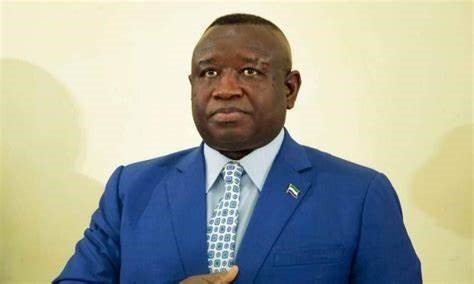By Marcus Bangura
The state of national unity and cohesion in Sierra Leone is complex and fluid, influenced by numerous factors and actors since independence on 27 April 1961, and since then, achieving national unity and cohesion has been a persistent challenge, deeply affecting the fabric of society.
Political tensions have been a central issue, with the rivalry between the ruling Sierra Leone People’s Party (SLPP) and the main opposition, the All People’s Congress (APC), being a significant source of division. Both parties have been accused of framing policies to favour their strongholds and engaging in tit-for-tat politics. This political rivalry has dominated Sierra Leonean politics for over sixty years, undermining efforts towards national unity and cohesion.
Despite efforts to promote unity, political manoeuvring and manipulation by both parties have left national unity in a precarious state. Reverend Gibrilla Kargbo, in his article “Overcoming the Challenges to National Unity and Cohesion in Sierra Leone” (June 7, 2020), noted that despite significant efforts over the past fifty-nine years, there has been little progress in achieving true national unity.
Recent initiatives, such as the signing of the “Agreement of National Unity” between the government and the APC and the formation of a Unity Government under the Tripartite Agreement, show promise but face ongoing challenges. The quest for national unity and cohesion remains a high priority for ordinary citizens who have long desired peace and harmony.
Crucial challenges to national unity and cohesion include:
- Ethnic and Regional Divisions: Historical ethnic and regional tensions have exacerbated divisions and fuelled mistrust among different groups. The legacy of colonialism and the politicization of ethnicity have deepened these divisions, hindering efforts to foster unity.
- Political Polarization: Partisan politics, violence, and intimidation have deepened political divisions, often aligning with ethnic and regional lines. This lack of political tolerance and cooperation undermines social cohesion.
- Economic Disparities: High unemployment rates and widespread poverty contribute to social unrest and division. Economic disparities lead to inequitable distribution of resources, further exacerbating tensions.
- Governance and Corruption: Weak institutions and corruption erode public trust and hinder efforts to build a cohesive society. Bad governance and corrupt practices undermine national unity, with a lack of accountability allowing these issues to persist.
- Social and Cultural Factors: Limited access to proper public education perpetuates stereotypes and prejudices. Diverse cultural practices and beliefs can sometimes lead to misunderstandings and conflicts among ethnic groups, despite some similarities in secret societies.
- Post-Conflict Issues: Unresolved issues from the civil war, including historical grievances and personal vendettas, continue to affect social cohesion. Challenges in reintegrating former combatants and addressing the needs of war-affected communities hinder national unity.
Additional challenges include societal stratification, a legal system that does not always serve justice, politicization of society and the security sector, a struggling economy, and a heavy tax burden on the people. Weak literacy levels and limited political education, along with negative systems like cultism and state capture, further undermine national unity and cohesion.
Moreover, the recent coup attempt on November 26, 2023, has added to the challenges of achieving national unity and cohesion.
To overcome these challenges, Sierra Leoneans must collectively identify and address the obstacles to national unity and cohesion. Without concerted efforts, the country risks remaining stagnant, with politicians prioritizing their interests over the nation’s well-being.


